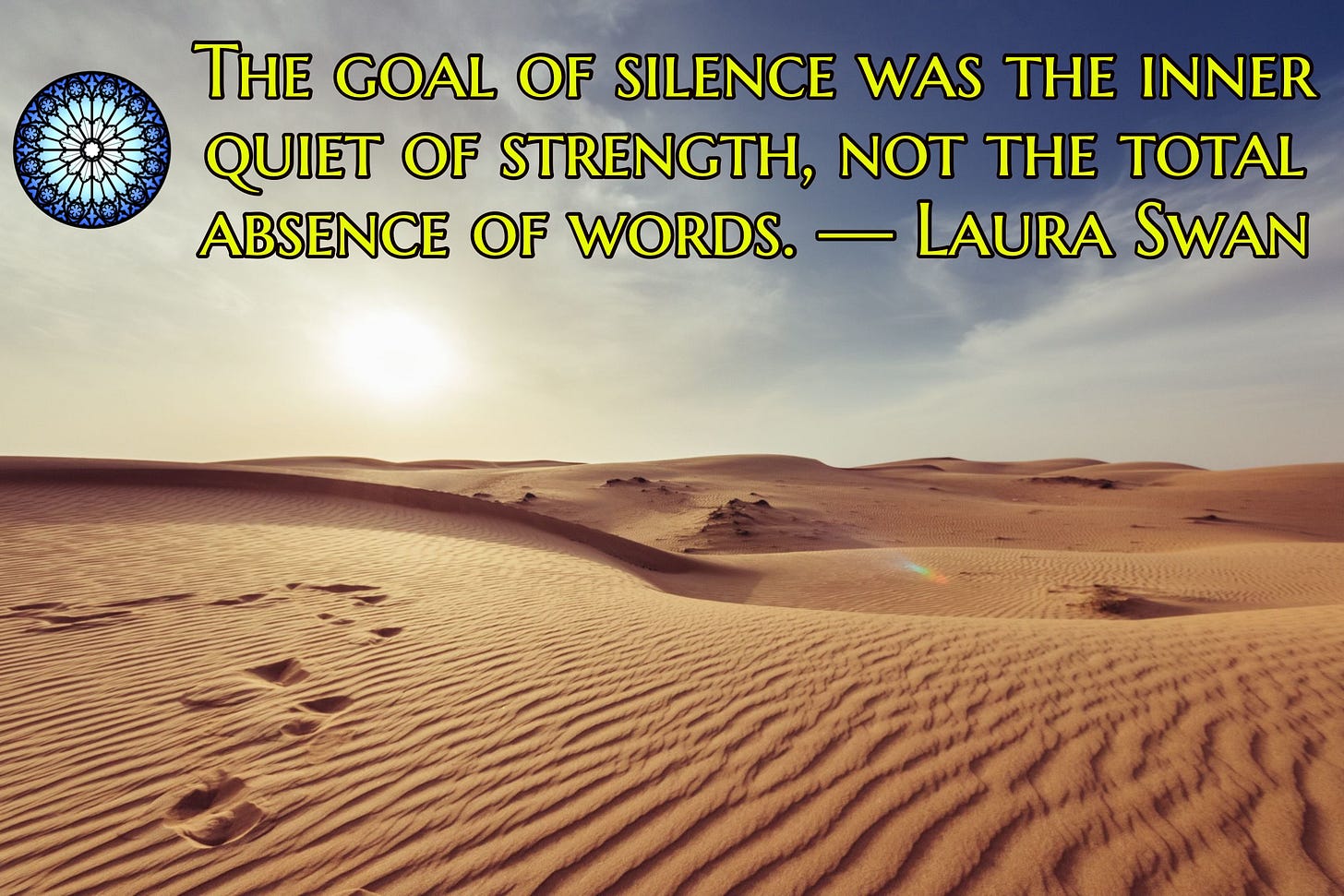The Silence of the Desert
Not the Absence of Words: the Presence of the Sacred
Note: A reader of this Substack has asked me to write some reflections based on the Sayings of the Desert Mothers and Fathers. There are so many wonderful insights and stories to choose from! Today I’m offering an initial reflection on the silence of the desert, and over the next two weeks I’ll share some thoughts on seven of my favorite of the many gre…




